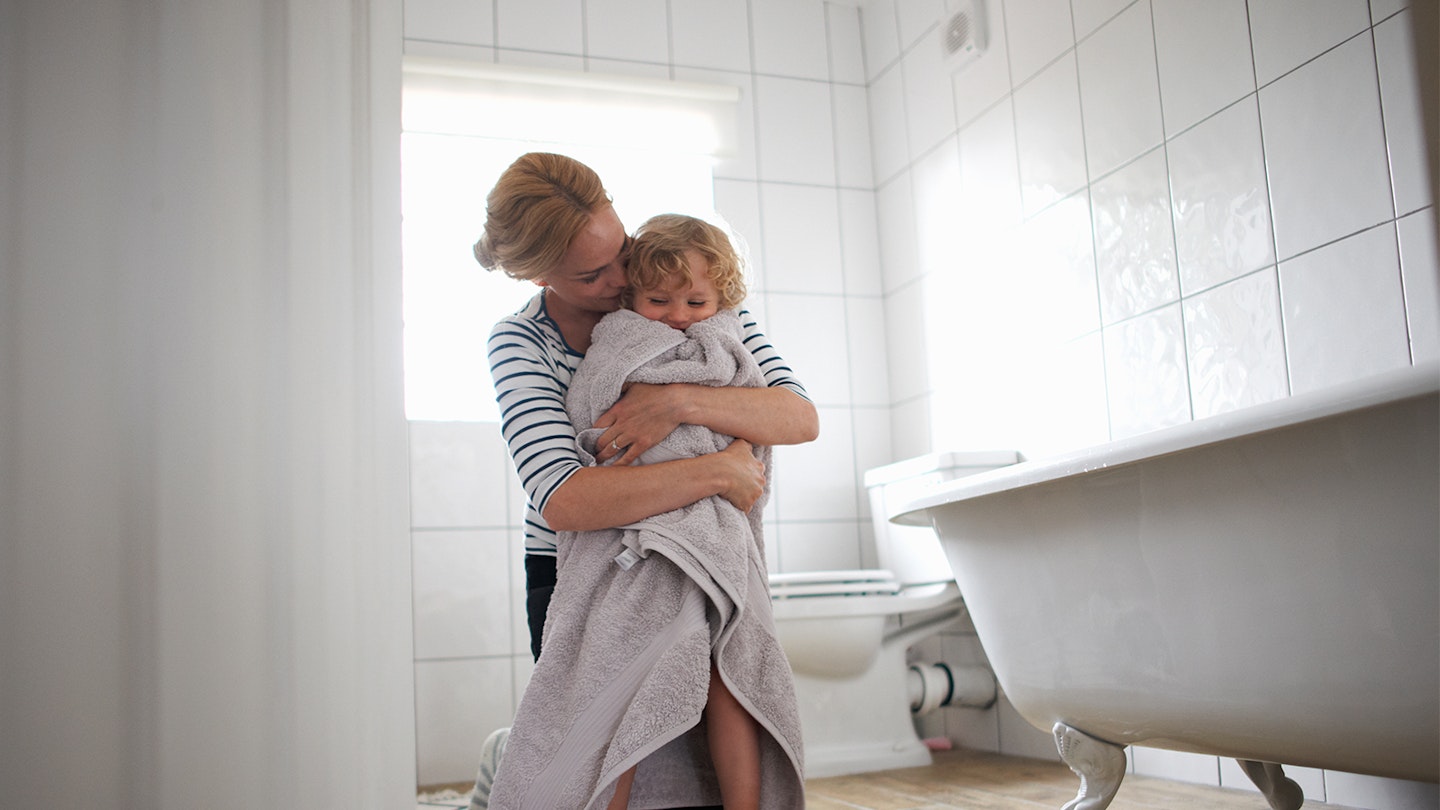The newborn phase has passed and you’re more confident about baby bathtime. But could you make it better?
Getting your baby into a good bathtime habit is a lovely, relaxing way to end the day – for both of you.
In those early weeks, your baby doesn’t really need a daily bath as she’ll be pretty clean. But soon, you’ll be bathing your baby almost every night.
It’s a great part of a baby’s bedtime routine and a lovely way to have some calming one-on-one time.
Pick the best time
Giving your baby a bath while she’s in a good mood is key.
‘Avoid bathing her when she’s overtired or hungry,’ says Rachel Waddilove, author of The Baby Book: How To Enjoy Year One. ‘And have everything you need to hand, such as cotton wool, a clean towel and clothes.’
Keeping your baby warm
Babies lose heat from their bodies quickly, so your bathroom must be warm (24-27˚C).
‘You could invest in a bath thermometer, so you know the water is the right temperature – around 36˚C,’ says Rachel.
Baby tub
Choose a good tub. ‘A baby bath gives your newborn less space to get lost in,’ adds Rachel.
‘Or improvise and line the kitchen sink with a slip-proof mat.’
Foam and fabric bath supports are good for keeping your newborn’s head out of the water, but bath seats should be avoided until your baby can sit up on her own.
How often is it bath night?
It’s up to you.
Once or twice a week is enough, but you’ll need to top-and-tail daily to keep her skin clean and free from rashes.
Help your baby enjoy bathtime
Handling a wet and wriggling baby takes practice, so keep it simple. Clean her face then gradually lower her into the bath. Support her head, neck and body with one hand and use the other to wash her.
While many babies find bathtime relaxing, others get distressed. ‘For newborns, try talking or singing, showing you’re happy about bathtime. Toys such as cups are good for distracting older babies,’ says Rachel.
‘Small babies also get cold quickly, so five minutes is ample in the water.’
How to dry
To dry your baby, wrap her in a soft towel and pat gently. ‘Take extra care around the creases of the neck, arms, legs, bottom and between fingers and toes as they can get sore if not dried,’ says Rachel.
Bathtime is also great for checking your baby for rashes and dry skin.
‘If your baby’s bottom is sore, apply a thin layer of balm,’ adds midwife and neonatal skincare advisor Sharon Trotter. ‘Don’t use moisturiser in the first few weeks.’
Pre-bed baby massage
Baby massage is a great way to bond, improve the condition of your baby’s skin and boost circulation.
‘Opt for vegetable-based massage oils, which are free from mineral oils, perfume and colours,’ says Sharon.
Stroke her tummy to help her relax, using the three middle fingers to lightly circle around her abdomen in a clockwise direction.
